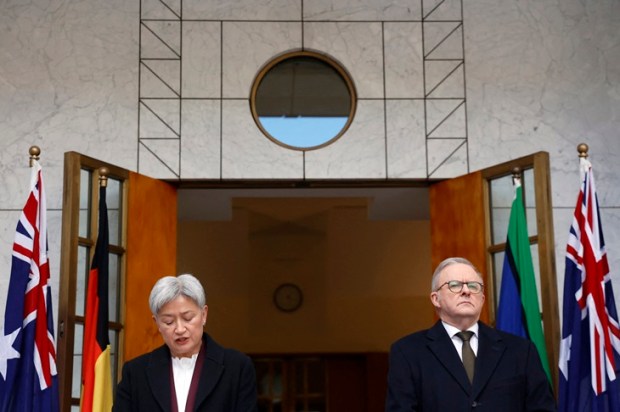Politics happens in a context.
This means that national leaders must operate in the knowledge that their plans will be buffeted by unexpected events over which they have little or no control. They need to be agile and adept at responding to events. Our Prime Minister appears, at best, unresponsive to this reality.
Not since his election in May, 2022, has Albanese himself appeared so ineffective as he has this week. He was in the wrong place, at the wrong time, for the wrong reason.
While the Australian Voice referendum has, by design, dominated much of our public discourse since Labor’s election – other critically important matters have inserted themselves into our consciousness – just days before the national vote.
The Voice has taken its place in the great sweep of global events unfolding in recent days. We are talking about important things other than the referendum.
These include the dramatic and appalling invasion by Hamas into Israel last Saturday, the devastating 6.3 magnitude earthquake in Afghanistan, Russia stepping up the war in Ukraine, the release of the four-year Disability Royal Commission (12 volume) Report, the shambles surrounding the Qatar Airways decision and that half-hearted decision of Qantas Chair, Richard Goyder to quit the beleaguered airline – in 2024.
These events have thrown Albanese’s arrival in Uluṟu for a final ‘Yes’ pitch on the Voice into stark context. The vision of the solitary Prime Minister standing with Uluṟu (formerly Ayers Rock) in the background is powerfully emblematic of the impotence of his premiership.
It is the political equivalent of ScoMo’s holiday in Hawaii as bushfires gripped southern Australia. Wrong place, wrong time! Why, for example, is the Prime Minister not back in a Canberra chairing a meeting of the National Security Committee – as the Federal Opposition Leader has called for? Surely the invasion underway in Israel warrants such a forum.
Albanese has enthusiastically backed a referendum for Australia which is very likely to be voted down in a majority of states and nationally on October 14. From its inception, the referendum was overtly designed to shield Labor from facing the hard challenges in indigenous communities – especially in health, housing and education.
It was crafted to have voters focus on a referendum ‘per se’ not on the issues that concern voters – all voters whether Indigenous or non-Indigenous.
Australian taxpayers have contributed massively to efforts to see improvements in these critically important policy areas for Aboriginal Australians – but for reasons that remain largely unexplained – resources have not reached those needing it most and demonstrable uplift for many communities remains elusive.
This is a failure of government public policy on a grand scale. The Voice however was never the answer. Voters knew it, public policy strategists knew it and almost certainly, many in Cabinet knew it.
Albanese, in a grand (but likely futile) gesture pushed hard for the referendum against a background of complete ignorance of what else to do in order that he be seen to be doing ‘something’ – ‘anything’ – on Indigenous policy.
Labor had years to work on a framework that would improve outcomes for Indigenous Australians – and the best they (and friendly indigenous elites) could come up with is a Voice to Parliament that would enshrine a so-called ‘advisory body’ into the national Constitution.
John Howard and successive conservative Prime Ministers tried hard on Indigenous policy and many initiatives were launched during their time in office. Tony Abbott tried particularly hard.
Under Labor, however, vague, imprecise, condescending and patronising answers were given to serious questions asked by people genuinely wanting to know how the Voice would work in practice. Voters we’re being asked to go with the ‘vibe’ of the thing.
The Prime Minister, along with his Minister for Indigenous Affairs, Linda Burney, must take full responsibility for what is shaping up as a debacle. All too often it was they who said the detail will come later. The Parliament will determine the detail – but only after the referendum.
Labor strategists and a myriad of advisers thought they were onto a winner. Such people are practiced in the art of obfuscation. This time, if the polls are right, their ploy appears to have failed miserably. There are others too who will not escape justified criticism.
Noel Pearson and academic Professor Marcia Langton (among many others) also carry a great deal of the blame in seeking to foist Constitutional change on an unreceptive electorate. Condescension doesn’t come close!
This is to say, for all the money, strategic and political resources behind the ‘Yes’ campaign, the Voice is little more than a declaration of how remote elites have become from everyday Australians.
The apparent yawning disconnect between politics and voters and between corporations and customers will rightly occupy vast amounts of media space over the coming weeks. How heart-warming to be told this week how to vote by no fewer than 25 former Australians of the Year. Nothing shouts ‘elites’ more than this late shot over the bow.
Australian voters correctly said ‘No’ to a Republic and appear likely to again have said ‘No’ to a Voice.
Meanwhile, while pro-Palestinian demonstrators roam Sydney, and the shocking news of an Australian having been killed in the war in Israel, Albo remains in remote central Australia peddling hard on something a significant majority of voters do not want.

























